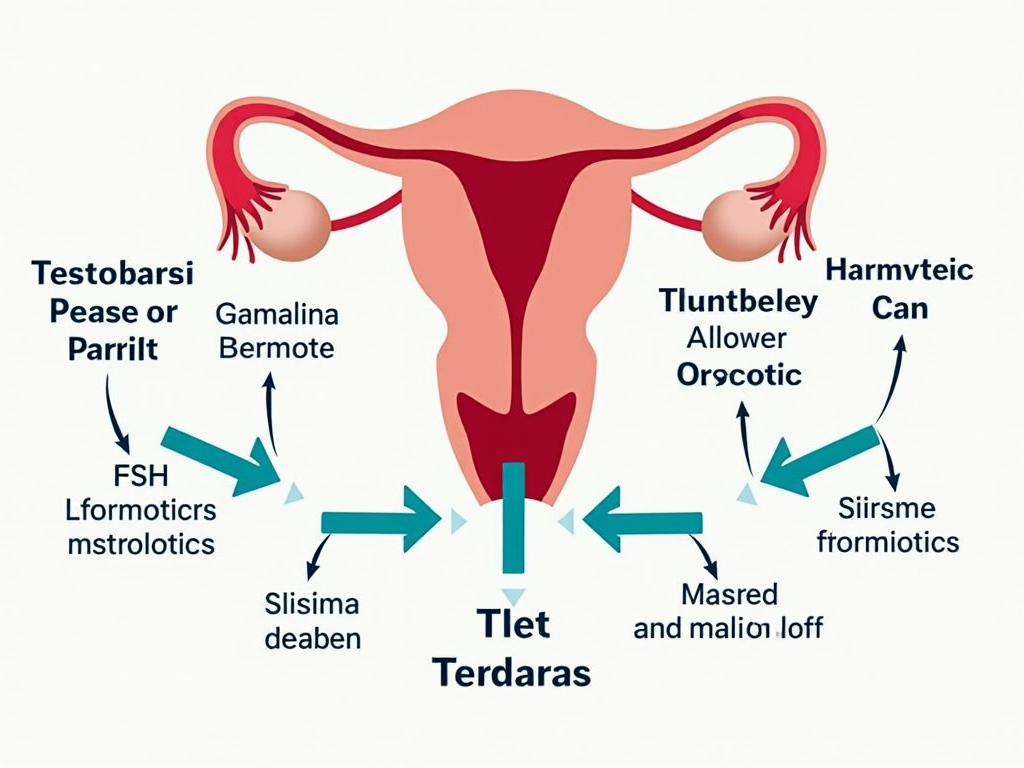Hormone Therapy for Male Fertility Issues: A Comprehensive Guide
March 26, 2025, 5:24 p.m.
Fertility struggles can hit hard, especially when you’re trying to start a family. Many think it’s mostly a women’s issue, but male fertility challenges are just as common—about 40% of infertility cases involve men. Hormone therapy for male fertility issues offers hope. This guide explains how it works, why it matters, and what you can expect.
Why Male Fertility Matters
When we talk about infertility, the spotlight often lands on women. But men play an equal role. Low sperm count, slow-moving sperm, or oddly shaped sperm can make conception tough. These problems often tie back to hormones not doing their job. That’s where fertility hormone therapy steps in.

What Is Hormone Therapy for Male Fertility Issues?
Hormone therapy for male fertility issues uses medications to fix hormone imbalances that mess with sperm production. Hormones are like the body’s messengers. When they’re off, sperm quality suffers. This treatment gets those messengers back on track, boosting your chances of becoming a dad.
Types of Fertility Hormone Therapy
Doctors use different approaches depending on what’s wrong:
- Gonadotropin Therapy: Shots of FSH and LH kickstart sperm production in the testes.
- Testosterone Therapy: Boosts low testosterone, but too much can actually lower sperm count, so it’s tricky.
- Clomiphene Citrate: A pill that nudges your brain to make more FSH and LH naturally.

How Does It Work?
Think of your reproductive system like a factory. Hormones are the managers telling the workers (testes) what to do. If the managers slack off, production slows. Fertility treatment with hormones steps in to get the factory humming again. For example, gonadotropin therapy delivers the missing managers directly.
The Treatment Process
Here’s how it usually goes:
- First Visit: You meet a specialist who checks your health and runs tests—blood work, semen samples.
- Diagnosis: They figure out what’s off with your hormones.
- Plan: You get a custom treatment, maybe shots or pills.
- Check-Ins: Regular visits track your progress and tweak the plan.

Benefits You Can See
Hormone therapy isn’t just science—it’s a lifeline. It can:
- Boost Sperm Quality: More sperm, better swimmers, healthier shapes.
- Raise Conception Odds: Good sperm means better chances of a baby.
- Keep It Simple: No surgery—just meds or shots.
- Fit You: Doctors tailor it to your body.
A Personal Take
I’ve seen this up close. My buddy Mark struggled for years. He felt defeated, like he’d let his wife down. After tests showed low testosterone, he started hormone therapy. Six months later, his sperm count tripled. Today, he’s chasing his toddler around the yard. It’s not magic—it’s medicine.

What to Expect
Starting fertility treatment takes patience. You might feel moody or get acne at first—normal stuff as your body adjusts. You’ll visit the clinic often to check hormone levels and sperm. Results don’t come overnight. It took Mark three months to see a change, and full improvement took six.
Real Stories
Take Jake, 34. He and his partner tried everything—diet, exercise, even cutting coffee. Nothing worked until a specialist found his LH levels were low. With gonadotropin shots, his sperm count jumped in four months. They’re expecting twins now. Stories like these show hormone therapy can turn things around.

Lifestyle Boosts
Hormone therapy works best when you help it along. Try these:
- Eat Smart: Load up on fruits, veggies, and nuts for sperm-friendly nutrients.
- Move More: A daily walk or jog can lift testosterone.
- Cut Bad Habits: Skip cigarettes and limit beer—they hurt sperm.
- Chill Out: Stress messes with hormones, so try deep breathing or a hobby.
When to Try It
Think about hormone therapy if tests show your hormones are off, or if simpler fixes haven’t worked. A specialist will know if it’s right for you. Don’t guess—get checked. It’s a big step, but it could be the one that changes everything.

Risks and Realities
No treatment’s perfect. Some guys feel tired or get sore where shots go in. Testosterone therapy can backfire if not watched closely, dropping sperm instead of raising it. Talk to your doctor about risks. For most, the upside outweighs the downsides.
Wrapping Up
Hormone therapy for male fertility issues can be a game-changer. It tackles the root of infertility with a clear plan—fix the hormones, improve the sperm, boost the odds of a family. If you’re facing this, don’t wait. See a specialist, get tested, and take control. You’ve got this.